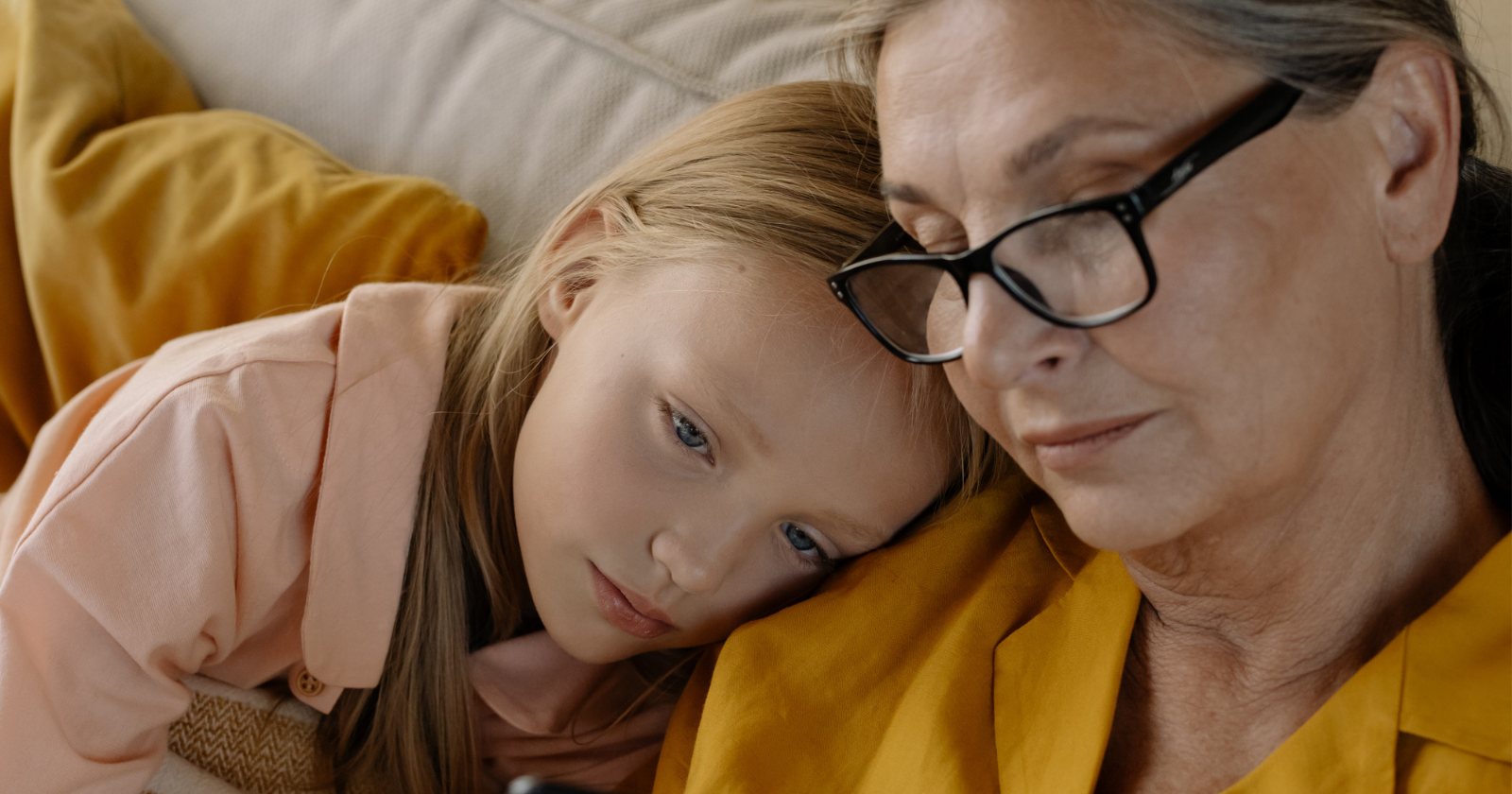Let’s be honest: grandparents play a huge role in shaping how kids see the world.
Many of us boomers grew up in a very different time — a time when kids were told to “toughen up,” when emotions were something you tucked away, and when parenting looked a lot more like commanding than collaborating.
Now, I’m not here to bash my generation (I’m part of it, after all).
But I do think it’s worth reflecting on some of the lessons we might be passing down — perhaps with the best intentions — that just don’t fit in today’s world.
I’ve got grandkids myself, and spending time with them has taught me just how much things have changed.
What worked (or at least seemed to work) fifty years ago doesn’t necessarily raise emotionally healthy kids today.
So, let’s take a look at eight outdated lessons boomers often teach their grandkids — lessons that many adult children wish their parents would quietly retire.
1) “Respect your elders, no matter what”
This one’s tricky.
Respect is important — I’d never argue otherwise.
But blind respect? That’s another story.
Many of us were raised to believe that authority figures — teachers, parents, grandparents, even the cranky old neighbor — were always right simply because they were older.
Related Stories from The Artful Parent
- Psychology says people who grew up in the 1960s and 70s developed these 9 resilience traits that younger generations lack
- People who stayed close to their parents into adulthood usually had childhoods with these 8 things in common
- 9 things experienced grandparents know about children that new parents haven’t figured out yet
Questioning them was seen as “disrespectful.”
But kids today are growing up in a world that values healthy boundaries and critical thinking.
Teaching them to respect everyone equally, regardless of age, but to also stand up for themselves when something feels wrong — that’s a far healthier message.
Respect should go both ways.
Instead of “respect your elders no matter what,” how about “treat everyone with kindness and fairness”?
That’s a lesson that ages well.
- What wisdom and maturity looks like in public writing - The Blog Herald
- The Boomer parents who drove 3 hours to every game and recital are now wondering why their kids can’t drive 30 minutes for Sunday dinner - Global English Editing
- Psychology says people who prefer tangible keepsakes over digital copies usually display these 8 distinct personality traits - Global English Editing
2) “Real men don’t cry”
Ah, the classic.
I still remember hearing this one from my own father.
Back then, showing emotion — especially for boys — was seen as weakness.
But here’s the truth I’ve learned over time (and through a few hard knocks of my own): bottling up feelings doesn’t make anyone stronger.
It makes them disconnected.
We now understand that emotional expression isn’t a flaw; it’s a form of emotional intelligence.
When we tell boys to “man up” instead of letting them cry or talk about their feelings, we’re teaching them that vulnerability is shameful.
That can follow them into adulthood — damaging relationships and even mental health.
I’ve learned that one of the best gifts we can give our grandkids is permission to feel.
If your grandson’s crying over a scraped knee or a bad day at school, let him.
Listen. Empathize.
That’s how resilience grows — not through silence, but through connection.
3) “Finish your plate — there are starving kids somewhere”
This one comes from a place of gratitude, sure.
I heard it every night at dinner.
But forcing kids to clean their plates, even when they’re full, can backfire.
For one, it teaches them to ignore their body’s natural hunger cues.
And second, it can create an unhealthy relationship with food — something many adults still struggle with today.
Instead of guilt-tripping them into eating more, we can help them learn to appreciate food in other ways: involving them in cooking, talking about where food comes from, or even donating to a food drive as a family.
Gratitude doesn’t require overeating.
Besides, if the goal is to reduce waste, teaching moderation and mindful eating works a whole lot better than, “You’d better eat that last pea!”
4) “Children should be seen and not heard”
If you grew up in a boomer household, chances are you heard this one at least once.
Back then, kids were often expected to stay quiet, stay polite, and not interrupt adult conversation.
But silencing kids teaches them that their voices don’t matter — and that’s the opposite of what today’s parents want.
Kids need to feel heard to develop confidence and communication skills.
When my granddaughter starts chatting mid-conversation, I’ll admit — my instinct is still to say, “Hold on, sweetheart, the adults are talking.”
But I’ve learned to pause, let her speak, and really listen.
It’s amazing how much more open and respectful she becomes in return.
If we want kids to learn how to listen, we have to show them what it looks like when they’re listened to first.
5) “You can’t go to bed until you’ve made up”
 Now, this one might sound sweet in theory — after all, who wants to go to bed angry?
Now, this one might sound sweet in theory — after all, who wants to go to bed angry?
But sometimes, forcing an immediate resolution just isn’t realistic.
When emotions are running high, kids (and adults!) often need space to cool down.
Teaching kids that every conflict has to be fixed right now can make them feel anxious or even teach them to rush emotional healing just to please others.
A better approach? “Let’s take a break and talk when we’re both calmer.”
That teaches emotional regulation and patience — skills that come in handy long after bedtime.
I’ve learned this lesson the hard way, both as a parent and a grandparent.
Sometimes, love means stepping back, not charging forward.
6) “Because I said so!”
If I had a dollar for every time I heard or said those four words… well, let’s just say I could treat the grandkids to a few too many ice creams.
But the truth is, “because I said so” shuts down learning.
Kids don’t just need rules — they need reasons.
When we explain the “why” behind a boundary (“We don’t shout because it hurts others” or “We turn off the TV now so you can get enough rest”), kids learn empathy and logic.
And let’s face it: kids today are sharp.
They can smell inconsistency from a mile away.
Explaining your reasoning doesn’t make you weak; it shows respect.
It also makes them more likely to follow the rule next time without a power struggle.
7) “Don’t talk about your problems — just get on with it”
This was practically a badge of honor in the boomer era.
Keep calm, carry on, don’t complain.
The trouble is, that mindset can turn into emotional suppression — something that doesn’t mix well with today’s push for mental wellness.
Talking about our problems doesn’t make us complainers.
It makes us human.
And when we show our grandkids that it’s okay to open up — about sadness, stress, or even failure — we’re teaching them emotional literacy.
If you’re like me, you might’ve grown up thinking therapy was for “other people.”
But these days, emotional support is recognized as a strength, not a weakness.
Our grandkids are growing up in a world that values communication.
Let’s support that, not stifle it.
8) “You have to pick one path and stick with it”
Here’s a lesson I heard over and over: “Get a steady job, work hard, retire, and enjoy your golden years.”
There’s nothing wrong with stability — it built our lives, after all — but today’s world doesn’t operate that way.
Young people now are encouraged to explore, to pivot, to try different careers and passions.
And that’s a good thing!
It builds adaptability, creativity, and resilience — all traits that matter more than ever in an unpredictable world.
When I see my grandson switch from wanting to be a marine biologist one week to a filmmaker the next, my old instincts whisper, “He needs focus.”
But then I catch myself.
He’s not being flaky; he’s exploring.
And that curiosity is something worth nurturing.
The new generation doesn’t need to “stick with one path.”
They need to learn how to navigate many — with courage and curiosity.
A few final thoughts
At the end of the day, most boomers mean well.
We share what we know because we care — because we want our grandkids to be safe, strong, and happy.
But sometimes love means letting go of old scripts and learning new ones.
Times change.
The world changes.
And if we want to connect meaningfully with our grandkids, we need to change too — not by losing our values, but by updating how we pass them on.
So next time you’re about to say, “Because I said so,” or “In my day, we didn’t do that,” maybe pause and ask: Is this teaching them what I really want them to learn?
After all, our goal isn’t to raise obedient kids — it’s to raise thoughtful, kind, and emotionally strong adults.
And that’s one lesson that never goes out of style.



